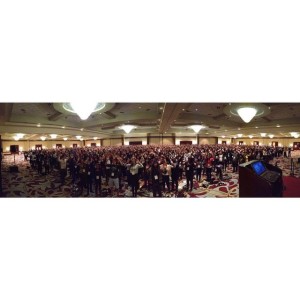‘No justice will be served for Eric Garner,’ declared New York Attorney General, Eric Schneiderman.
Although this is a subjective and definitely paraphrased statement, on Tuesday, December 2, Mr. Schneiderman declared on behalf of the Grand Jury that Officer Daniel Pantaleo had been acquitted for the murder of Eric Garner. The night the announcement was made, I could not sleep. As cold as that sounds, I could not sleep, not necessarily from the heartache or from the injustice, but from the loud chants of the protestors just down the street. That night, the month earlier, and two years ago, I laid in bed, peacefully, naively thinking that these deaths and acquittals were matters that responsible and elected adults in Washington D.C. would handle. However, three days after the acquittal, while reflecting on my own responsibilities, I became so angry — angry with myself for lacking the attentiveness to realize my naivety throughout the past few years regarding these continuous injustices.
So what happened in the span of three days that made me so repulsive of my previous attitude? SDLC happened.
SDLC, Student Diversity Leadership Conference, which was hosted in 2014 in Indiana, is a conference in which nearly 1700 students who represent and associate with different races, genders, non-genders, among other social identifiers, met to discuss the direction of our supposedly progressive country in terms of attitudes towards sexuality, race, age, gender, family structure, social class, ethnicity, ability, and religion. SDLC was not a fun three days of light-hearted conversations. It involved three 15-hour days of structured conversations among groups that focus on heavy and often upsetting topics. In addition to these important discussions that take place at every SDLC each year, it just so happened that the event fell right after the day that Mr. Pantaleo was acquitted for the death of Mr. Garner.
At SDLC, we talked about the recent tragedies surrounding Eric Garner and Michael Brown, but we used these tragedies as a way to talk about even more oppression that is and has been pervasive. In my group, I listened, I learned, and I watched as brave teens revealed the hardships they have faced as female, as Muslim, as gay, and as black in the US. I cried; they cried; the group cried. It was devastating, but it was also exactly what gave me some well-needed wake up calls.

Credit: Facebook
My first wake up call, on the very first day, came with realizing how passive and unaware I really was. After hearing about the struggles and terrors that students had faced as members of different marginalized groups, I suddenly realized how sheltered I had been. The story of Louis, an African American teenager, who came home one day to find his brother with black, blue, and yellow bruises along his arm, which the principle recounted as a “slave joke gone wrong,” resonated with me most. I was disgusted to have once believed that the Michael Brown, Eric Gardner, and Trayvon Martin “incidents” were exceptions. I soon began to understand that violent discrimination was everywhere and anywhere in the U.S., and that death, on the basis of discrimination, is no once-in-a-blue-moon occurrence.
My second wake up call, on the second day, was the realization that history repeats itself. It is a unique time to be an American, as our group leader, Ms. Lindsey, remarked. At first, I did not understand the purpose of such a statement. But then hours and many conversations later, it began to click for me. After the first day, I lamented the fact that I was born just a few decades too late to witness the Civil Rights movement along with the other historical movements of the ’60s and ’70s. But then came epiphany number two, all thanks to Ms. Lindsey. This is 2015, the 2nd Civil Rights movement; just as with the 1st, 2nd, and 3rd waves of feminism, people are demanding more rights and calling out more injustices in the times of controversy and tragedy. 2015 will be the start of the decade that makes history books. Progress and reform will begin, and it already has. The deaths of Garner and Brown are the catalysts of a second wave of reform.
My third wake up call, on the third day, which I believe is most important of all, helped me realize that I do not need to be black or gay or disabled to fight for the justice of the minority groups in our country. This realization came to me after discussing next steps we could take as teenagers. “Historical movements have only been successful due to the power of cooperation among diverse groups of people,” said Ms. Lindsey. I am a 16-year-old girl, but I am old enough to know what’s wrong and right. I am white, but I play an integral part in a die-in against police brutality towards African Americans as much as an African Americans themselves. I may be straight, but my voice is as important as a bisexual’s in a walk for the legalization of gay marriage. If there’s one thing I want you to learn from reading about my experience at SDLC, it’s this: no matter who you are or how you identify, you are as vital to any cause as any other person. Do not doubt your value or the value of a peaceful protest.